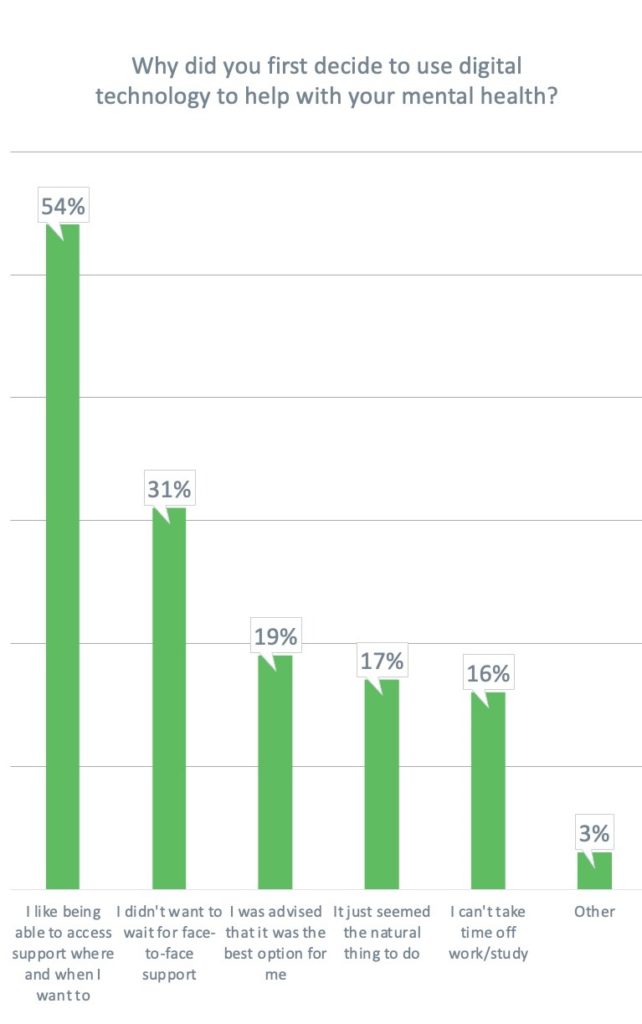
latest
Digital tools: offering mental health support whenever, wherever you need it
Digital support tools are popular because of their easy accessibility – but there are downsides too

“I love using the meditations on Headspace as I can use it at any time to calm my thoughts. It’s like having a little friend with you 24/7 and nothing else gives you that.” Online workshop respondent
Digital tools such as smartphone apps are an increasingly popular method for accessing mental health support. According to research carried out by ZPB on behalf of FCC, a large part of their appeal is that people can use them whenever, or wherever, they need them. More than half of the 515 users surveyed by ZPB said that this easy availability was the reason they first started using digital tools for mental health support.
The second most popular reason for starting to use digital tools was not wanting to wait for face-to-face support, cited by 31% of respondents.
In a two-day online workshop with 15 participants, one respondent said: “I love using the meditation as I can use it at any time to calm my thoughts. It’s like having a little friend with you 24/7 and nothing else gives you that.” Another said: “I like how easy it is to access it and you can access it at any time of the day and wherever you are. I don’t always carry a paper workbook and a pen with me.”
Lack of personal contact is ‘daunting’
There were perceived downsides to using digital tools, however. Four in 10 respondents found the lack of face-to-face support challenging, while a third found it hard to stay motivated when using digital tools to support their mental health. One said: “The main drawback in using digital tools is that sometimes it can feel daunting without personal contact with a mental health specialist.”
Another limitation, according to one workshop respondent, is the generic nature of digital tools: “If someone is having a panic attack, the last thing they need is something that promotes ‘being in the moment’ and ‘being mindful’ because they’re overwhelmed by the moment and their mind is in overdrive.”
Respondents were also asked how digital tools could be made more helpful. Half cited more frequent interactions with GPs, while 39% said they would welcome a better overview of which tools are helpful and for what. More than a third said that more information on how to use the tools would make them more helpful. As one workshop participant said: “It’s a great thing if a professional tells you what to do with it but most people struggling with mental health start using digital tools without much information just because professional help is not available.”
